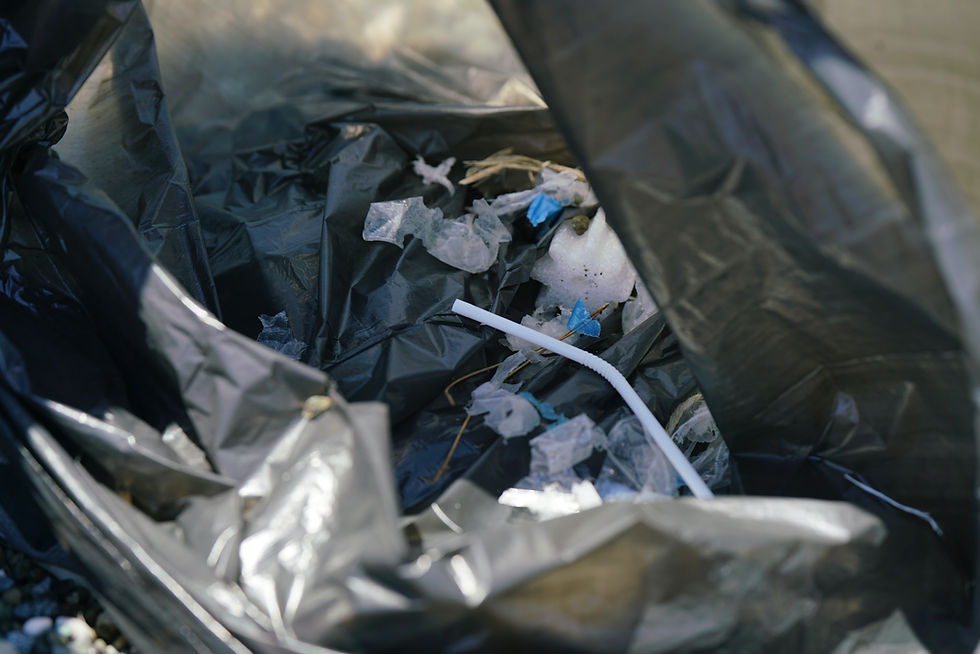Thai community waste banks demonstrate how local ingenuity can transform rubbish into a valuable resource
- Editorial Team SDG12

- Nov 15, 2025
- 3 min read

Across Thailand, an unassuming yet transformative movement is quietly taking root. Known locally as ธนาคารขยะ or “waste banks”, these community-driven recycling schemes are redefining how ordinary citizens perceive, sort and profit from their waste. From village temples to urban schools, the model is rewriting norms of consumption and disposal by linking local agency to the broader circular economy.
At its simplest, a waste bank functions like a savings institution for recyclables. Households deposit sorted plastics, paper or metals at local collection points, where the materials are weighed, valued and sold to recycling buyers. Participants receive small financial returns, or the income is channelled into community projects, reinforcing a sense of shared benefit. What began as a modest environmental experiment has become a social innovation shaping both rural and urban waste management.
Community models shaping the circular future
In the southern province of Surat Thani, the Baan Bang Lha community demonstrates how local ownership can breed success. Supported by the municipality and NGOs, residents pay a small monthly fee of 50 baht to sustain a collection network. Within a year, they sold nearly 1.2 tonnes of recyclables and earned over 7,000 baht. Though modest in scale, the project’s impact lies in building trust, shifting behaviour and proving that environmental stewardship can generate tangible rewards.
Nearby, at Wat Potawas Temple, a model led by community pioneer Lapon Phuekdej, known affectionately as “Lung Dum”, has evolved from neighbourhood clean-ups into a recycling social enterprise processing around ten tonnes of plastic a month. The temple acts as both moral and logistical centre, turning spiritual leadership into a driver for environmental responsibility.
Nationally, waste-bank initiatives now number more than 7,700 communities, collecting about 1.4 million tonnes of recyclables each year, roughly 6 per cent of Thailand’s total solid waste. This has prevented more than 550,000 tonnes of carbon emissions, an outcome that aligns closely with SDG 12 – Responsible Consumption and Production. Bangkok’s recent Waste Wise Station pilot, featuring smart kiosks for e-waste and used oil, further illustrates how local experiments can be scaled and digitised.
Success built on participation and partnership
These bottom-up systems succeed because they draw upon Thailand’s deep-rooted communal traditions. Leadership from monks, teachers or volunteers creates credibility, while partnerships with private companies and municipal bodies ensure technical support and market access. Projects like the Government Savings Bank’s prototype waste-bank network show how financial institutions can reinforce circular models through micro-finance and infrastructure investment.
However, the model is not without friction. Volatile recyclable prices, limited storage space and contamination from unsorted waste threaten financial stability. Moreover, inconsistent integration with formal municipal systems means many banks operate in isolation. Without policy alignment and stable end-markets, their progress risks stalling once donor support fades.
A cultural and economic revaluation of waste
At its heart, Thailand’s waste-bank movement is less about waste than about values. It challenges a disposable culture by assigning worth to the overlooked and by turning environmental care into a collective economic act. The model also demonstrates that sustainability need not be imported through policy decrees; it can be nurtured through local wisdom, religious institutions and community networks that already command trust.
If scaled thoughtfully, these banks could become the backbone of a circular society, one in which every bottle or can holds the potential to fund education, maintain public spaces, or strengthen community solidarity. Yet the ultimate success will depend on balancing traditional volunteerism with modern supply-chain efficiency.
Thailand’s experiment offers a compelling lesson for other developing economies: when communities see waste not as a burden but as a shared asset, sustainability ceases to be a distant goal and becomes a living practice.
Further reading



